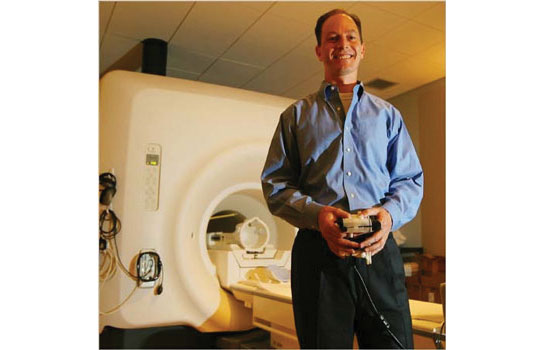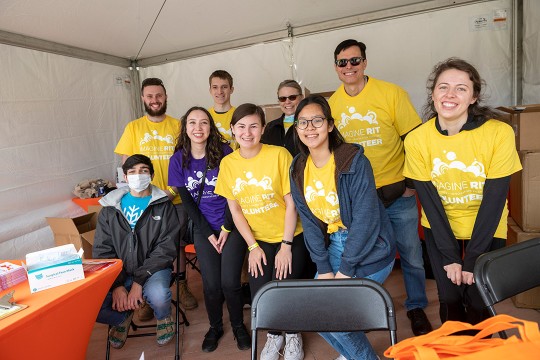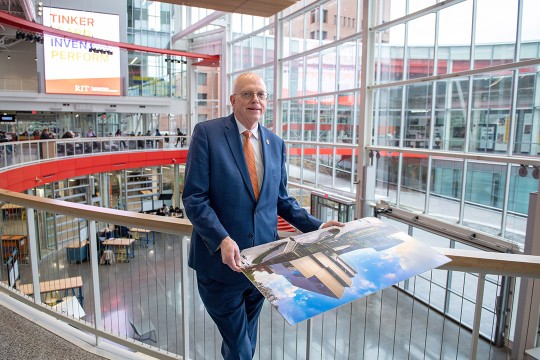Neuroscientist Christopher deCharms Helps Patients Read Their Own Minds
Innovator in real-time magnetic resonance imaging speaks at RIT April 19
Christopher deCharms
Neuroscientist Christopher deCharms, a pioneer in the development of real-time magnetic resonance imaging or fMRI, will discuss the use of the technology in diagnosis, pain management and the treatment of disease at 8 p.m. April 19 in Webb Auditorium at Rochester Institute of Technology. The presentation, “Imagine, Imaging your Own Brain,” is part of the Caroline Werner Gannett Project’s Visionaries in Motion Series.
DeCharms, the founder and chief executive officer of the life sciences company Omneuron, is using fMRI to analyze human brain scans and investigate how people’s thoughts can impact brain activities that control everything from how we feel pain to addiction and depression. The technology has the potential to transform treatment of a host of diseases while greatly enhancing our understanding of how brain functions impact our actions.
In an article in The New York Times on the use of fMRI, deCharms noted, “We believe people will use real-time fMRI feedback to hone cognitive strategies that will increase activation of brain regions.” With practice and repetition, he said, this could lead to long-term changes in the brain.
Prior to founding Omneuron, deCharms served as a researcher at the Keck Center for Neuroscience at the University of California at San Francisco. He is also the author of Two Views of Mind: Abhidharma and Brain Science, which analyses the similarities and differences in how Western neuroscience and Tibetan Buddhism view the brain.
The Caroline Werner Gannett Project was created in 2006 by Mary Lynn Broe, Gannett Professor of the Humanities at RIT. Along with the interdisciplinary Gannett Working Group, Broe brings to campus international scholars, authors and artists in lectures, colloquia and workshops that explore new connections across the sciences, technologies, social sciences and humanities. All Gannett events are free and open to the public.















